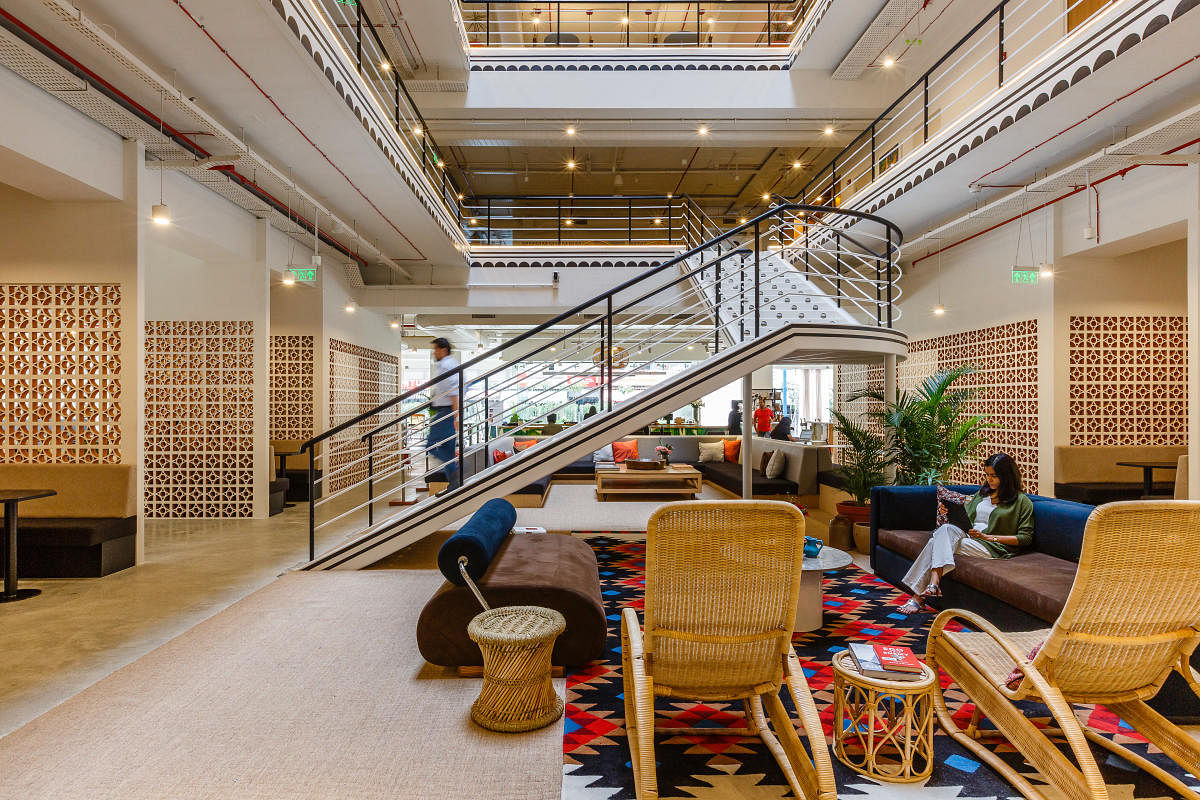
Bengaluru’s co-working spaces are adapting to a post-pandemic world by offering greater flexibility to their clients.
With a majority of companies encouraging work from home, the spaces have had a lean year, and are now gearing up for the resumption of business with new technology and more flexible terms.
Nikhil Mangal, general manager, Cowrks, says occupancy is far from 100 per cent. “Earlier, the essence of co-working was to have the vibe of a community, through events, interactions and networking sessions. Now the focus is more on flexibility, safety and employee wellness,” he told Metrolife.
Office spaces are bringing in more technological changes to minimise contact. “Bluetooth sensors and app-operated coffee machines are some of the changes brought in,” Nikhil explains.
Flexible workspace
Spread across six lakh sq ft across multiple prime locations in Bengaluru, 315Work Avenue has seen about 40 per cent of its clients return.
Founder Manas Mehrotra says work from home may remain, but office spaces will not lose their importance. “Many business functions require employees to work in an office setting,” he says.
Companies have had to deal with long-term lock-in leases with heavy security deposits, and that has taken away their ability to respond quickly to what is happening in the economy.
Mehrotra predicts that companies will strive to be agile and build more flexibility into their real estate portfolios. “Redesigning and restructuring of existing real estate will pose a challenge,” he says. He believes, however, co-working spaces will be able to respond to design changes more efficiently than traditional office spaces.
New style
Karan Virwani, CEO, WeWork India, says the pandemic gave rise to a new style of working that included the need for flexible hours, rostered shifts and workspaces closer to home. “During the lockdown, we saw more than a 10 per cent rise in our enterprise member-base,” he says. In the next quarter, demand will rise, especially from large enterprises looking for flexibility to be able to adjust to market conditions, he predicts.
Hotels
Some new co-working spaces have come up since the pandemic outbreak. Located at Ibis Hotel, Work@Ibis is one such. Irfan Khatry, general manager, ibis Bengaluru City Center and ibis Bengaluru Hosur Road, says, “We have now adapted public areas in the hotel for groups to meet, work, share and co-create.”
For the hotel, there’s no extra cost involved. “The idea is to offer flexible terms and conditions, keeping the current situation in mind. While offices and coworking companies are expecting yearly or long-term contracts, we are more flexible about daily, monthly or semester contracts,” he says. According to Embassy Office Parks REIT, new leasing has improved after the lockdown curbs were lifted. However, the average demand, as compared to previous years, is still low.
What’s new
Sensors to open and close doors
App-operated coffee machines
More flexibility in contract terms